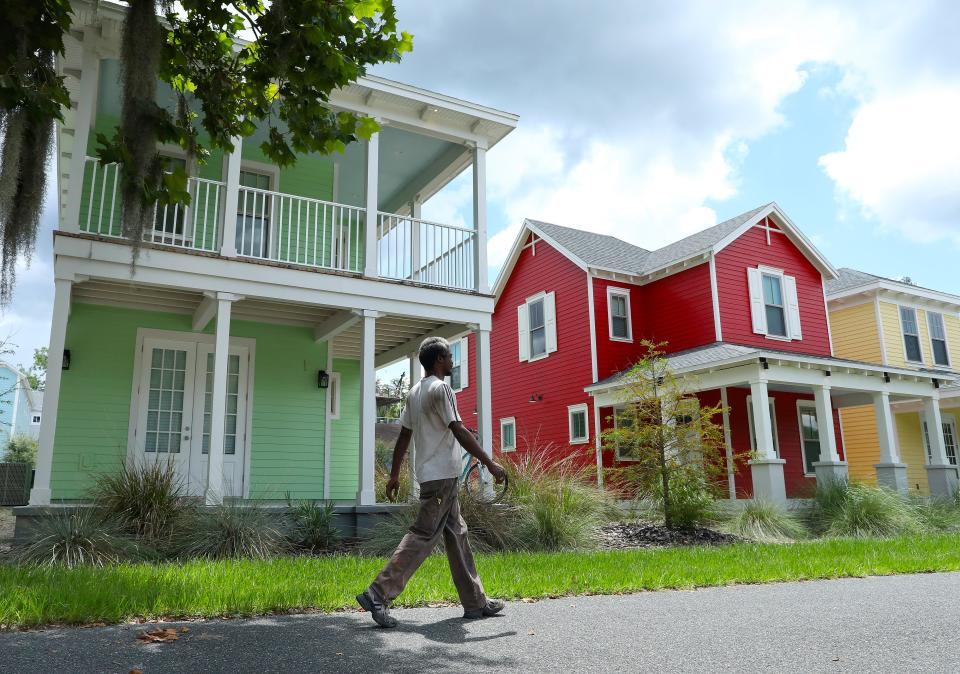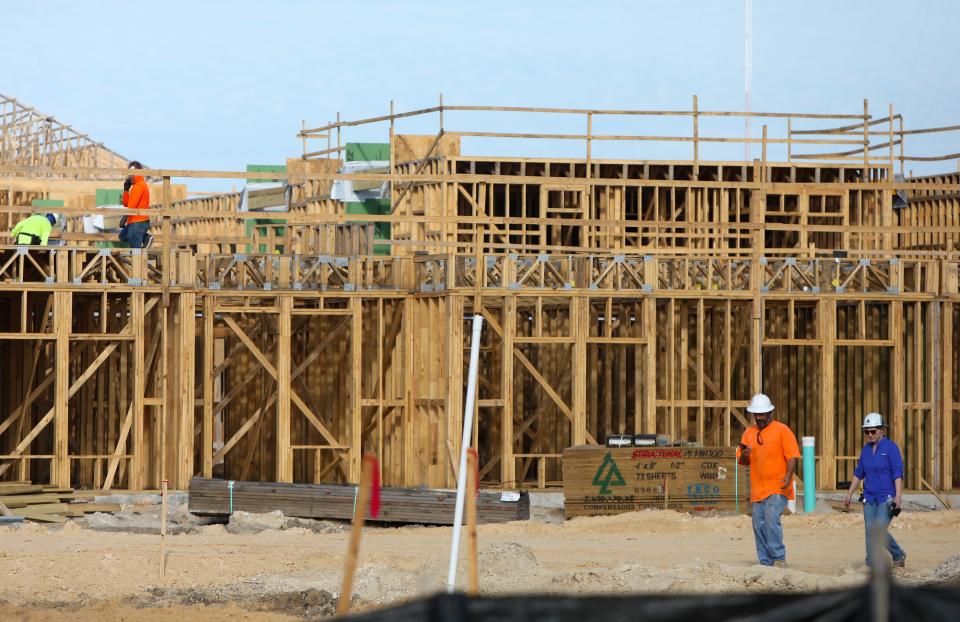It's the wrong time for the Gainesville City Commission to eliminate single-family zoning
Reactions to a plan to eliminate single-family zoning in neighborhoods across Gainesville don’t match the reality of what the plan would accomplish. Both opponents and supporters overstate the impact of the proposal, which would likely play a minor role in bringing more housing and greater equity to the city.
Gainesville’s economically and racially segregated housing patterns contribute to wide disparities that have persisted for too long in our community. Historically Black neighborhoods shouldn’t be the only parts of the city where more affordable multi-family housing such as duplexes, triplexes and quadraplexes are built.
The City Commission majority’s plan to allow these housing types to be built in neighborhoods across Gainesville would be more equitable and add affordable housing in a city in desperate need of it. About 16,000 households in Gainesville — not including students — spend more than 30% of their incomes on housing, which is the federal definition of housing being unaffordable. There are long waiting lists for public housing and thousands more residents moving into our area each year.

But the experiences of other cities that have eliminated single-family zoning, such as Minneapolis, suggest that little new housing would be built under zoning changes in the first few years. Commissioners should first put measures in place to encourage affordable units in any new housing and home ownership by residents.
The City Commission halted a similar version of zoning changes known as GNV Rise in 2018 amid heated opposition, then failed to build significant public support for these ideas in subsequent years. Overwhelming opposition to the current proposal threatens future efforts to raise the money needed to construct and subsidize additional affordable housing, which is required to truly help low-income residents who have the greatest housing needs.
Forcing through zoning changes now would be foolish, happening less than three weeks before an election in which Gainesville voters decide on a new mayor and three commission seats. With a tax measure on this November’s ballot that includes funding for housing and the City Commission considering putting another measure on the 2024 ballot that would dedicate tens of millions more to housing, commissioners would be wise to start building public support for these initiatives.
More: Sun contributors offer a variety of opinions on housing issues
For these reasons, the City Commission should vote down or delay the zoning changes at its meeting Thursday. Commissioners should instead continue working on more broadly supported parts of their housing plan, laying the groundwork for the next commission to eventually reconsider more controversial ideas.
The commission needs to build public confidence in the city, which is sorely lacking, by demonstrating success in building affordable housing through a community land trust and in the Power District development. But residents who oppose the current proposal should also be more open to compromise, or offer alternatives that accomplish similar objectives in diversifying housing options across Gainesville.
Alachua County commissioners, who voted unanimously Monday to oppose the city’s zoning proposal, need to address their own contribution to housing-related problems. Increased density is necessary in Gainesville to provide another place for new residents to live rather than in the sprawling development west of Interstate 75, which only adds to traffic congestion and environmental problems.

Likewise, Rep. Chuck Clemons, R-Newberry, and Sen. Keith Perry, R-Gainesville, have staked their own opposition to the city’s plan while failing to account for the Florida Legislature's role in exacerbating the affordable housing crisis. State lawmakers have regularly raided state affordable housing funding for other purposes and failed to address the housing crisis as they concentrate on culture-war battles.
A lack of affordable housing is a huge problem that requires solutions on all levels of government as well as by the nonprofit sector and other parts of the community. By delaying zoning changes, the Gainesville City Commission would start building the trust needed to better work with these partners on a comprehensive plan to address the problem.
— This editorial was written by Gainesville Sun Opinion and Engagement Editor Nathan Crabbe and represents the opinion of The Sun’s editorial board.
Join the conversation
Share your opinions by sending a letter to the editor (up to 200 words) to letters@gainesville.com. Letters must include the writer's full name and city of residence. Additional guidelines for submitting letters and longer guest columns can be found at bit.ly/sunopinionguidelines.
Journalism matters. Your support matters.
Get a digital subscription to the Gainesville Sun. Includes must-see content on Gainesville.com and Gatorsports.com, breaking news and updates on all your devices, and access to the eEdition. Visit www.gainesville.com/subscribenow to sign up.
This article originally appeared on The Gainesville Sun: Editorial: Timing is wrong for zoning changes in Gainesville

